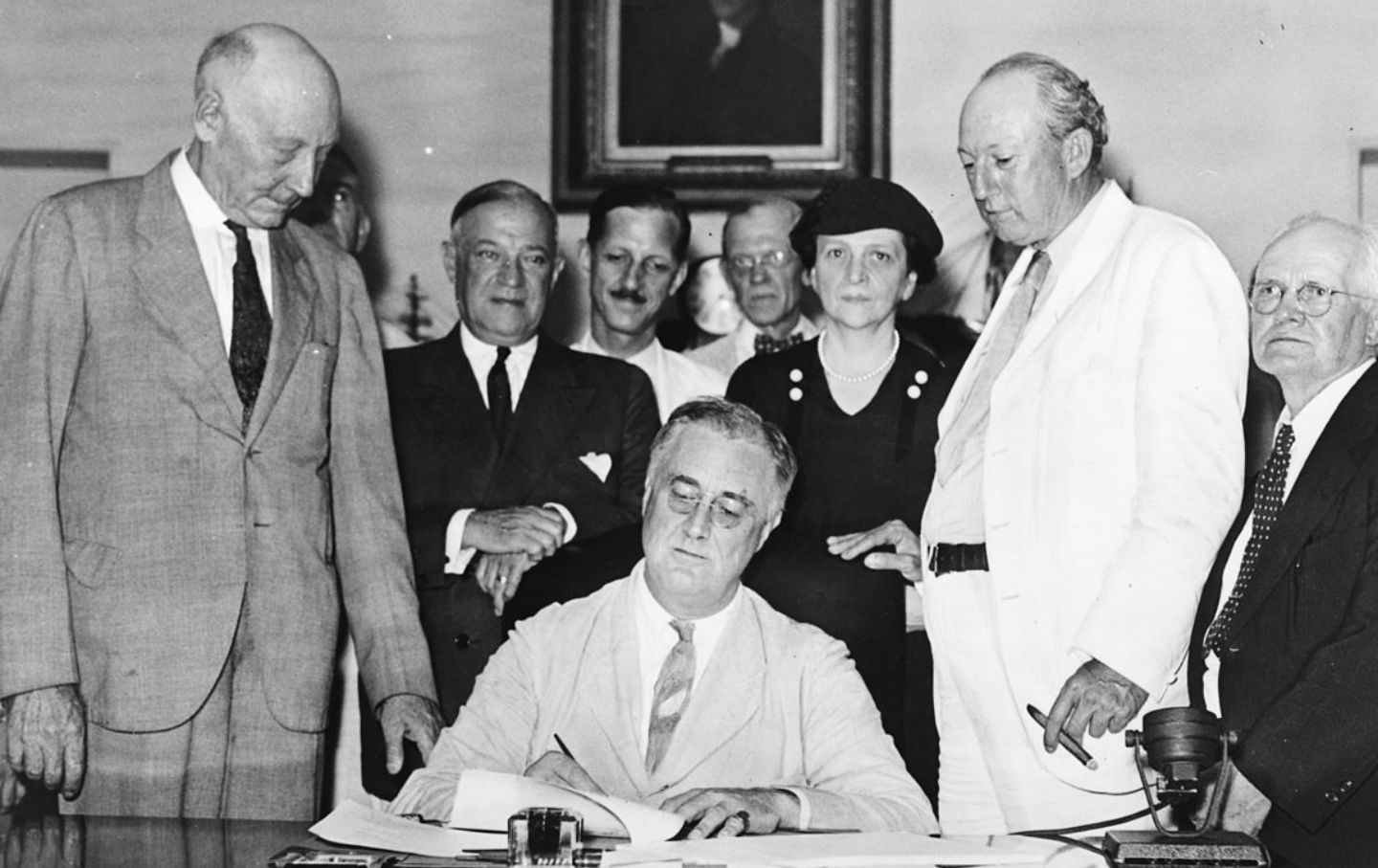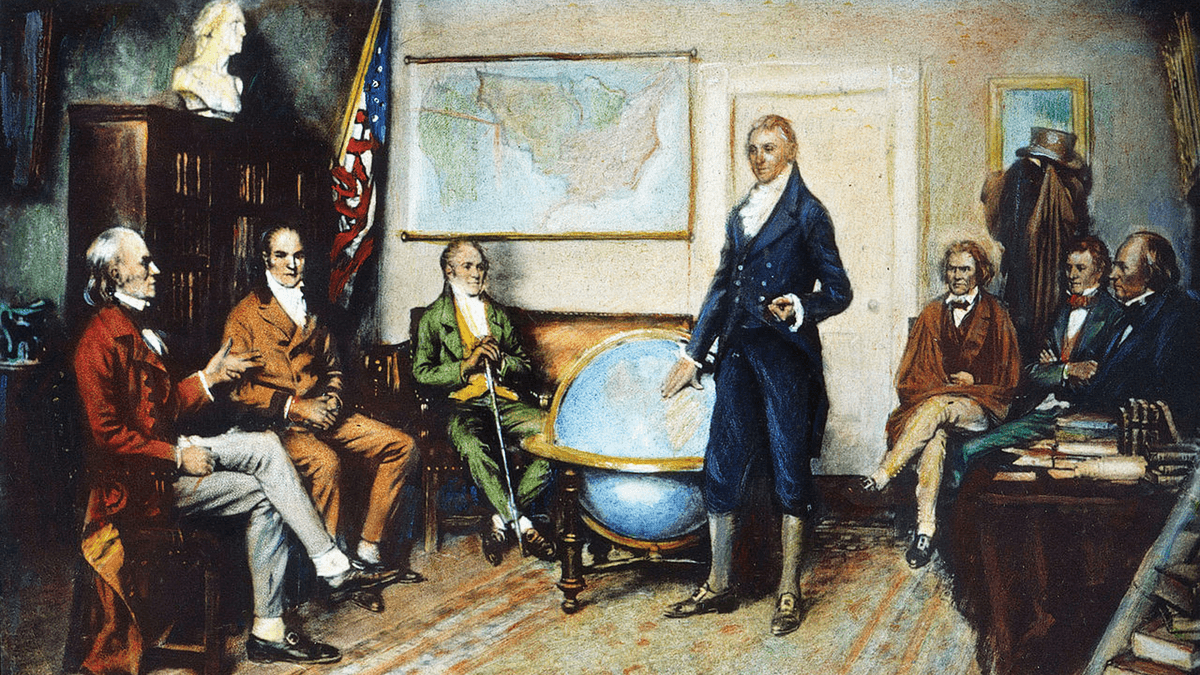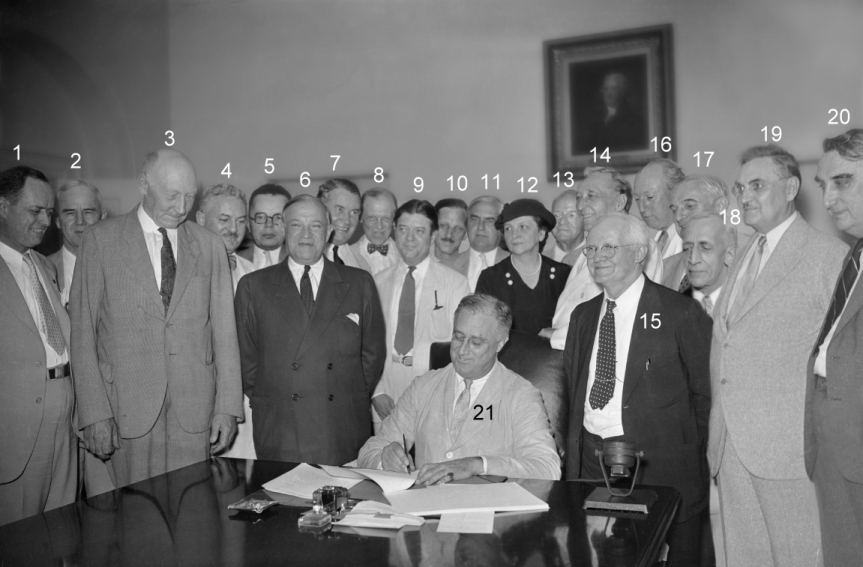FDR Signs the Social Security Act

President Franklin D. Roosevelt signing the Social Security Act, August 14, 1935
What Happened?
August 14, 1935. Washington, D.C. In the shadow of the Great Depression, President Franklin D. Roosevelt signed the Social Security Act into law, promising 'some measure of protection to the average citizen and to his family against the loss of a job and against poverty-ridden old age.'
The law created a new kind of safety net—one not tied to military service or need. It offered retirement benefits, unemployment insurance, and a foundation for modern welfare programs. But its beating heart was a promise to keep the elderly from slipping into destitution.
For generations, aging Americans had relied on extended family for care. But industrialization, urban migration, and longer lifespans had frayed that safety net. By the 1930s, many seniors faced poverty without support, and the financial burden on working families was mounting.
Amid the Depression’s ruin, bold proposals for elder assistance gained popularity, from Senator Huey Long’s 'Share Our Wealth' to Frances Townsend’s sweeping pension plan. Roosevelt’s Social Security proposal aimed to meet the need—while sidestepping more radical solutions.
The system asked every working adult to pay payroll taxes throughout their career, with benefits promised at age 65. Many believed they were simply getting back what they had paid in—a perception Roosevelt encouraged because it built political loyalty to the program. In reality, current workers’ taxes funded current retirees’ checks.
Under the original plan, payroll taxes began in 1937 and benefits were to start in 1942. But with revenue piling up and no payouts yet, Roosevelt advanced the first payments to 1940. Over time, Congress expanded benefits, draining the initial reserve and intertwining Social Security with the nation’s budget priorities.
It was a quiet revolution. For the first time, federal benefits were a universal earned right—not charity, not a reward for service. The Social Security Act permanently redefined the relationship between the American people and their government.
Why It Matters
The Social Security Act was more than a response to the Great Depression—it was a turning point in how America defined its obligations to its citizens. By creating a national safety net, it acknowledged that economic security isn't just a personal responsibility but a collective one. This shift laid the groundwork for modern social welfare policy and continues to shape debates about equity, responsibility, and the role of government in safeguarding dignity across a lifetime.
?
Why was the Social Security Act considered a groundbreaking shift in U.S. policy?
How did the Great Depression influence the creation of Social Security?
What parallels exist between ancient and modern forms of economic security?
In what ways has Social Security evolved since 1935?
How do debates about Social Security reflect larger questions about the role of government?
Dig Deeper
Explore how the Great Depression of the 1930s forced America to consider having a social safety net, leading President FDR to sign the Social Security Act into law via his New Deal programs. Learn how Social Security has changed over time.
Explore the paradox of welfare programs, and learn how they inadvertently reinforce generational poverty, and what we can do to fix them.
Related

The Monroe Doctrine
How a young United States told the world to stay out of the Western Hemisphere—and what that meant for the Americas.

Westward Expansion, Sectionalism, and the Road to Civil War
Manifest Destiny fueled territorial growth, but it also deepened sectional divides—turning political disagreements over slavery and states’ rights into irreconcilable conflicts that led to civil war.

The New Deal: Fighting Depression with Bold Ideas
Faced with economic collapse, President Franklin D. Roosevelt launched a revolutionary plan to rebuild America from the ground up. The New Deal wasn’t just policy—it was a bold experiment in hope, action, and government responsibility.
Further Reading
Stay curious!
